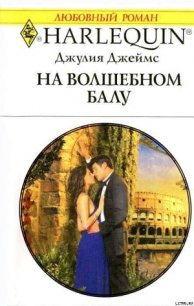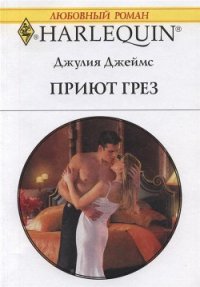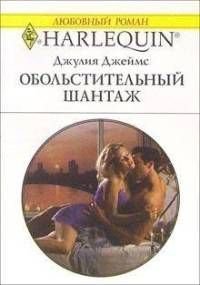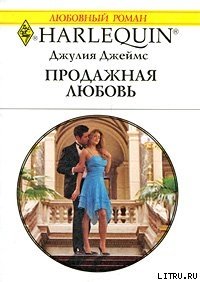Julia Ward Howe - Richards Laura E. (бесплатная регистрация книга TXT) 📗
"But could I see that woman now, I would say to her: 'If you were serving the king at his table, and held his wine-cup in your hand, and your father stood without, asking for you, you should set down the cup, and go out from the royal presence to honor your father, so much the more if he is poor, so much the more if he is old.' And all that is really polite in polite society would say so too."
On the same page is a memory of later years:—
"I once heard a lady, herself quite new in society, say of a Parisian dame who had shown her some attention: 'Ah! the trouble with Madame —— is that she is too good-natured. She entertains everybody.' 'Indeed,' thought I, 'if she had been less good-natured, is it certain that she would have entertained you?'"
CHAPTER IX
IN THE HOUSE OF LABOR
1896-1897; aet. 77-78
THE HOUSE OF REST
I will build a house of rest,
Square the corners every one:
At each angle on his breast
Shall a cherub take the sun;
Rising, risen, sinking, down,
Weaving day's unequal crown.
* * * * * *
With a free, unmeasured tread
Shall we pace the cloisters through:
Rest, enfranchised, like the Dead;
Rest till Love be born anew.
Weary Thought shall take his time,
Free of task-work, loosed from rhyme.
* * * * * *
Measured bread shall build us up
At the hospitable board;
In Contentment's golden cup
Is the guileless liquor poured.
May the beggar pledge the king
In that spirit gathering.
Oh! My house is far away;
Yet it sometimes shuts me in.
Imperfection mars each day
While the perfect works begin.
In the house of labor best
Can I build the house of rest.
J. W. H.
On the fly-leaf of the Journal for 1896 is written:—
"That it may please Thee, to have mercy upon all men, we beseech Thee to hear us, Good Lord."
"January 1. I ask for this year, or for so much of it as God may grant me, that I may do some service in the war of civilization against barbarism, in my own country and elsewhere."
"January 18.... Re-wrote and finished my Easter poem, for which gratias Deo! I have had so much small business that I almost despaired of accomplishing this poem, of which the conception is good, but the execution very faulty. I took it all to pieces to-day, kept the thoughts and altered the arrangement."
"January 23. Dinner of Sorosis at the Waldorf, at 7 o'clock.
"Reached New York at 3 P.M. Elizabeth [Mrs. John Jay Chapman] had sent maid and carriage for me, which was most kind. Had a good rest and a short walk and went to Sorosis dinner, which was very brilliant and fine. I was asked to speak and took for my topic, 'The Day of Small Things'; the beginning of Sorosis and the New England Woman's Club, considered so trifling a matter, yet very important because it had behind it a very important principle; the fact that the time had come in which women were bound to study, assist, and stand by each other. I quoted Christ's saying about the mustard seed. Miss Barton's mission to Armenia I called a mustard seed, and one which would have very important results."
"January 27.... Wrote a few lines to Mrs. Charles A. Babcock, Oil City, Pennsylvania, for a woman's issue of a paper called the 'Derrick.' She wishes me to say what I thought would be the result of the 'women's edition' fad. I said that one result would be to drive to desperation those who receive letters, asking contributions to these issues."
"February 9. Another inspired sermon from C. G. Ames. Miss Page asked, 'Why is he so earnest? What does it mean?' I replied, 'He is in one of those waves of inspiration which come sometimes. The angel has certainly troubled the pool and we can go to it for healing.' Returning home, I wrote some lines about my sister Annie's picture. I had in church a momentary glimpse of the meaning of Christ's saying, 'I am the vine and ye are the branches.' I felt how the source of our spiritual love is in the heavenly fatherhood, and how departing from our sense of this we become empty and barren. It was a moment of great comfort...."
"February 10.... Gulesian last evening said that the Armenians want me to go to England, as a leader in advocacy of their cause. The thought brought me a new feeling of energy and enthusiasm. I think I must first help the cause in Washington, D.C."
"February 26. Hearing at State House on Suffrage. Worked at it [her address] somewhat in the early morning. Was tolerably successful in making my points. Was rather disappointed because no one applauded me. Considered that this was a lesson that we must learn, to do without praise. It comforted me to take it in this way. Soon the interest of what the others said put my own matters quite out of my mind. The hearing was a good one, all except a dreadful woman, calling herself a Socialist, full of insufferable conceit and affectation of knowledge. An English labor man spoke well."
"March 22.... As I left church, Mrs. James Freeman Clarke stopped me, took both of my hands in hers and said she was sure that the world was better for my having been in it. This from so undemonstrative a person moved me a good deal and consoled me somewhat for my poor deserts and performances in the past—a burden which often weighs heavily upon me...."
"April 2. Conservatory of Music, 3 P.M. I went in fear and trembling with a violent bronchial cold and cough, in a miserable storm. I prayed all the way there that I might be pleasant in my demeanor, and I think that I was, for my trouble at having to run such a risk soon went out of my mind, and I enjoyed the occasion very much; especially meeting pupils from so many distant States, and one or two from Canada."
"April 8.... I asked in my prayer this morning, feeling miserably dull and weak, that some deed of help and love might be given me to accomplish to-day. At noon came three gentlemen, Hagop Bogigian, Mr. Blanchard, and Mr. Breed, of Lynn, praying me to make an appeal to the women of America for their Armenian sisters, who are destroying themselves in many instances to avoid Turkish outrage. The funds subscribed for relief are exhausted and some new stimulus to rouse the public is much needed.... I felt that I had had an answer to my prayer...."
To Maud
241 Beacon Street, April 18, 1896.




